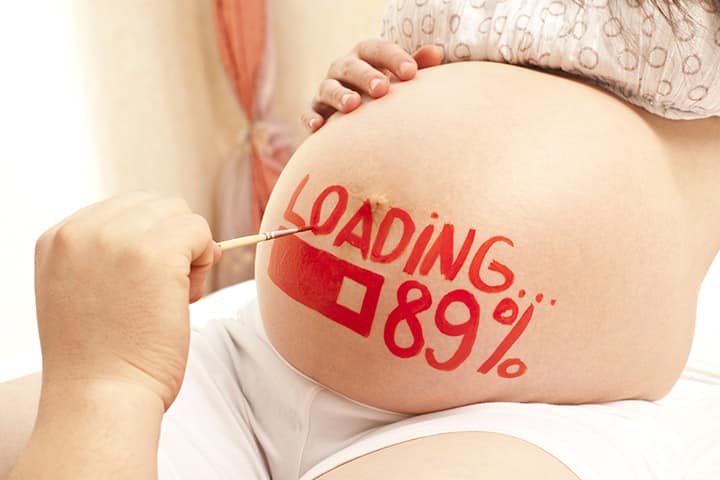It is natural to be apprehensive when it comes to labor as you approach your due date. Most of the first-timers have a far-fetched idea about the real thing, unlike the movies that we see which don’t miss to show a bump ready woman rushing the hospital in sheer pain, howling and shouting. But ladies, have heart, although you can’t escape the pain, the labor can be less dramatic than your acquired knowledge from these so-called movies!
Here is the thing you ought to know. Only 3 to 5% of babies are born on their estimated due date. The other around 40% of babies are born two weeks before the estimated due date, as well as the other 40%, are two weeks after. Few women may experience no signs of labor, and ought to discuss a plan of action if they already reach 42 weeks.
Here are some of the crucial symptoms that you should not miss if you are expecting your labor anytime sooner!
Unremitting lower abdominal pain

By any chance, if you have been feeling the pain for more than 3 or 4 hours then it is time to pull up the socks. Unremitting regular lower abdominal pain is the indication that warns you about to start of your labor. Also, this indicates that your cervix has started to dilate that would make way for your baby’s head to move down when you reach the end, in other words, active stage of labor. Although there is still time for the arrival of the new one, it is better to rush to the hospital and get settled even before the active phase begins.
Contractions are well timed

You certainly can not miss on this. If you notice that your pain has set into a rhythmic pattern that is waning and waxing at regular intervals, then call your hospital promptly. Time to get organized to leave. Closely monitor the contractions. If you feel that it peaks every 10 or 15 minutes, then congrats you are almost there. Just get going. However, an irregular return of the pain like at intervals of like 10 minutes, then 8 minutes, then say 20 minutes might as well indicate false labor, but it is still good to get yourself checked.
The water break

This one is easy to comprehend, so you need no explanation here. If the water bag breaks, then that indicates rupture of amniotic membranes, as well as the fluid, gushes out. This situation can lead to spontaneous active labor in most of the cases. When water comes out, the chances of bacteria getting inside your womb increases. This can cause harm to both you and your infant’s health. There is no reason why you ought to stay back once the water breaks out. Any vaginal discharge must put you on alert.
Bleeding

You haven’t touched your sanitary pads for months. It’s obviously for good as the pregnancy is no time for it. Remember, bleeding through your vagina amid your pregnancy needs you to be in the hospital soon because it can indicate imminent labor. When the cervix dilates for the baby to come, it may disrupt tiny blood vessel that is within. Although this is not the cause in all the cases, bleeding certainly isn’t a healthy symptom amid your pregnancy. So, it is better to reach your healthcare professional as soon as possible and look if there is any medical emergency.
A headache or Nausea

If you are uneasy with a splitting headache and feeling nauseated would urge you to look for medical assistance. Look no further, reach for the hospital. There are chances that your labor chose to kick start in a different way.
Additional tips
Rush to the hospital immediately if you feel any of the following symptoms
- Feel rectal pressure
- You vomit with contractions.
- Can’t walk or talk during contractions (probably you are in active labor)
It is crucial for both you and your doctor to plan an appropriate course of action once the labor begins. Discuss the topics such as the choice of a birthing center or hospital, the anticipated time to travel to the destination, and the personal items that are necessary amid the stay. These considerations ought to be considered long before the anticipated occurrence of labor.

